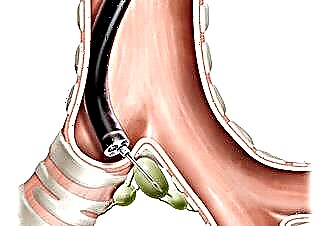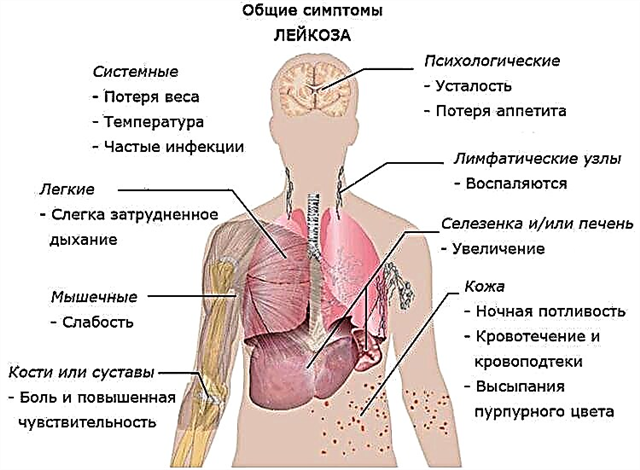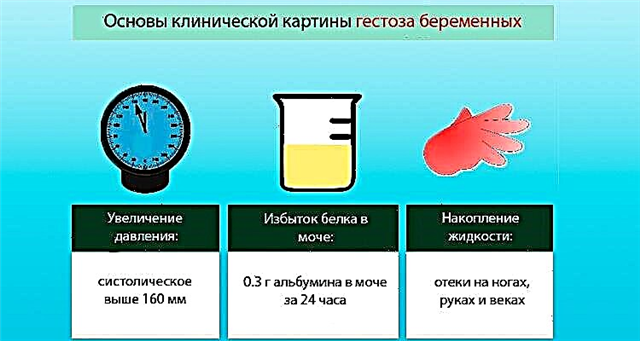Purulent tonsillitis is caused by the same pathogenic microorganisms as common tonsillitis. The only difference is the presence of small abscesses on the tonsils. Despite the unpleasant and frightening symptoms of the disease, accompanied by a high body temperature and sharp pain in the throat, purulent sore throat itself does not directly threaten the patient's life. In this case, complications are dangerous, which often arise with untimely or incorrect treatment.
Dangerous complications
 Due to purulent sore throat in the body, various complications associated with the redistribution of bacterial infection in various parts of the body can develop.
Due to purulent sore throat in the body, various complications associated with the redistribution of bacterial infection in various parts of the body can develop.
It is known that the bacteria that cause sore throat are localized mainly on the tonsils, where they begin to multiply, which provokes the onset of an inflammatory process, which is often accompanied by the appearance of abscesses.
This phenomenon is called purulent tonsillitis. It is at this stage that the development of infection in the body begins.
The main causes of complications are:
- late start of treatment;
- incorrectly prescribed treatment, which turned out to be ineffective against the causative agent of the infection;
- various immune disorders.
Complications arising from angina are often fatal.
At the initial stage of the development of the disease, it is necessary to begin adequate treatment as soon as possible, which should minimize the possibility of developing complications, because it is with them that angina is dangerous. The development of infection must be suppressed as much as possible, which does not allow bacteria to multiply and spread further in the body, causing various serious diseases. No doctor will be able to say where the infection will go next, which organ or tissue will be affected after a person has had a sore throat. A streptococcal or staphylococcal infection can gradually affect the body, as a result of which various diseases will develop. Some pathologies will be sluggish and often turn into a chronic form, while others, on the contrary, can develop so rapidly that even highly qualified specialists cannot save a person.
Therefore, treatment for angina should begin immediately after the diagnosis is made, that is, as soon as possible. Many people lose precious days believing that antibiotic therapy should only be used after complications begin.
You also need to remember that quite often the treatment of complications after purulent sore throat does not respond to antibiotics.
The following diseases can be considered the most frequent complications after incorrect or untimely treatment of angina:
- rheumatism;
- abscess;
- glomerulonephritis;
- chronic tonsillitis;
- otitis;
- sepsis.
Rheumatism
As for rheumatism, in this case, the diagnosis can provoke the onset of diseases of the heart, joints, skin, appearing as a result of complications after angina. So, the patient may develop rheumatic heart disease, chorea (disorder of the nervous system), polyarthritis (disease of the tissues of the joints), redness of the skin.
Important! Doctors believe that the cause of most cases of rheumatism is complications after untreated sore throats.
Rheumatic fever is caused by toxins produced by bacteria that attack the heart muscle. Pathogenic microorganisms become similar to some types of heart proteins, therefore, all proteins of this type are blocked by their own immunity. Such diseases are practically not cured and are often fatal.
Patients themselves rarely associate the causes of rheumatic fever with the consequences of angina. However, more often than not, just the wrong treatment of angina leads to such negative consequences. Remember that any form of sore throat requires medication with antibiotics.
With timely treatment of rheumatic fever, doctors usually give a positive prognosis. However, in a neglected state, treatment can continue for several years.
Abscesses
 Another common complication in angina is the occurrence of abscesses. It is the abscesses that appear first after a sore throat, if its treatment was not carried out correctly.
Another common complication in angina is the occurrence of abscesses. It is the abscesses that appear first after a sore throat, if its treatment was not carried out correctly.
Also, this complication can manifest itself in the presence of pus and an inflammatory process on the tonsils. If inflammation occurs directly in the amygdala, then this phenomenon is called an intratonsillar abscess or phlegmonous tonsillitis.
As a result of the occurrence of an abscess in the nasopharynx, an inflammatory process and an accumulation of pus occur.
The main symptoms of this complication are severe pain in the throat, which provokes soreness when turning the head, complicating the process of swallowing and opening the mouth. In such situations, body temperature often reaches high values - up to 40 degrees.
The inflammation is localized in the mediastinal region, which often causes thrombophlebitis and bleeding. The main treatment for abscesses is surgical intervention, the purpose of which is to open a purulent abscess and drain it.
Glomerulonephritis
The analogue of rheumatic fever is glomerulonephritis. The only difference is that in this case, bacteria exert their pathogenic effect on the renal glomeruli, which provokes the development of renal failure.
Most often, this disease occurs in children, regardless of the patient's age, as a result of complications after suffering from purulent tonsillitis. The main danger of glomerulonephritis lies in its autoimmune origin, which provokes the development of the body's reaction both directly to pathogenic microorganisms and to structural components. As a result, even with an effective fight against bacteria, kidney disease cannot be avoided.
Chronic form of the disease
 If the sore throat becomes chronic, then in this case it is often necessary to resort to an operation to remove the tonsils. After all, angina cannot occur more often than one or two times during the year, while an exacerbation of the chronic form can occur quite often. The main symptoms of this disease are frequent exacerbations, the presence of purulent plugs on the tonsils, chronic enlargement of the tonsils. The main feature of chronic tonsillitis is the presence of a negative effect on the tonsils, in which pathogenic microorganisms do not change the localization, while the immune system is not able to fight them.
If the sore throat becomes chronic, then in this case it is often necessary to resort to an operation to remove the tonsils. After all, angina cannot occur more often than one or two times during the year, while an exacerbation of the chronic form can occur quite often. The main symptoms of this disease are frequent exacerbations, the presence of purulent plugs on the tonsils, chronic enlargement of the tonsils. The main feature of chronic tonsillitis is the presence of a negative effect on the tonsils, in which pathogenic microorganisms do not change the localization, while the immune system is not able to fight them.
If the immune system is not weakened, then the body is able to control the multiplication of bacteria, while when the immune system malfunctions, bacteria are able to activate, causing an exacerbation.
The main danger of tonsillitis as a complication resulting from purulent tonsillitis is the frequent relapses of the disease, which greatly depletes the patient's body.
With regard to treatment, chronic tonsillitis is more difficult to treat than angina, in this case antibiotics alone cannot be dispensed with, you will have to use special procedures aimed at washing the tonsils, as well as bicillin prophylaxis.
This complication most often develops in children whose parents did not undergo timely antibiotic therapy, preferring exclusively folk remedies in the treatment of angina.Often, those children who had a sore throat at an early age, up to seven years old, periodically suffer from purulent inflammation in the nasopharynx, which often leads to the removal of the tonsils.
Otitis
In the case when the bacteria that are the causative agents of purulent sore throat spread into the Eustachian tubes and the inner ear cavity, a complication in the form of otitis media may occur. In this situation, inflammation is provoked, accompanied by sharp and severe headaches. Treatment of otitis media is often complicated by the inaccessibility of the affected tissues. Also, otitis media quickly enough turns into a chronic form, which leads to a weakening of hearing and increases the likelihood of complete deafness.
This complication is most dangerous for young children. After all, it is difficult for both parents and a doctor to diagnose hearing impairment in a child, while treatment in the late stages of the disease is ineffective.

Sepsis
The consequences of purulent sore throat can also manifest itself in the form of sepsis. This complication is one of the most severe diseases that occur after a sore throat. Sepsis occurs when the walls of blood vessels are damaged and pathogenic microorganisms can enter the bloodstream through them. Spreading through the bloodstream, bacteria can enter any part of the body, causing numerous foci of inflammation.
If sepsis occurs in an acute form with purulent sore throat, then this process is called septic shock. Moreover, the disease can develop in just a couple of days, and is most often incurable. There are cases of chronic infection, but this disease is also difficult to treat and progresses all the time. In the process of developing sepsis, the patient's body is constantly affected by abscesses, a characteristic symptom is nausea, vomiting, dehydration, unstable work of various organs and systems.
Important! With the development of sepsis, the patient must be placed in intensive care as quickly as possible for urgent medical care.
As a result of severe intoxication of the body, the patient may develop streptococcal shock. However, with angina, such a complication is unlikely, most often it occurs with more extensive abscesses.
Conclusions
 It turns out that, first of all, purulent tonsillitis is dangerous with possible complications. Therefore, the process of treating this infectious disease should be to prevent these complications.
It turns out that, first of all, purulent tonsillitis is dangerous with possible complications. Therefore, the process of treating this infectious disease should be to prevent these complications.
For this purpose, it is necessary to use antibiotics, the action of which will be aimed at combating the pathogen.
Important! Rinsing, sucking lozenges, using topical sprays and antiseptics can help reduce pain with angina, but they cannot reduce the risk of complications.



